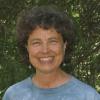“Let us sing as we go….
In the joy of our hope.”
- Laudato Si' (244)
Twenty years ago I was in a small group visiting with geologian Thomas Berry. We got to talking about the deplorable state of the planet. Our stories, statistics and images of widespread destruction, abject poverty, species loss and war piled high on the table around which we crowded. Many heavy sighs.
“It’s hard not to despair,” someone said. I nodded slowly.
Thomas cut in: “Despair is a luxury we can’t afford right now.”
That pulled me up short. Because, having grown up in a small home crowded with extended family, even young I knew the luxuries we couldn’t afford. Like new clothes, or a TV or store-bought Christmas presents. Mom made and remade our clothes from her friends’ dresses and coats. Dad worked long hours in a windowless dry cleaning shop, his lungs and health seared by fumes. We ate a lot of soup from boiled bones. We managed. Wished for “just a little extra.”
I never tasted despair. Instead, I learned to live in an atmosphere of Hope, along with her twin sister Trust. Trust in each other, in Dad’s organic garden, Mom’s many home-making skills, and above all, love.
Now, most days, the bad news overwhelms me; you know it, too. And despair flickers around the edges of my grief for the world. It sears my soul with noxious fumes of war, tar sands extraction, murderous attacks on Palestinian neighborhoods, and forests and coral reefs.
I pray Thomas’ words like a mantra and refuse Despair any space in my heart or lungs.
"Pope hope" envisions enormous conversion-toward-life of every single dominant global system: economic, energy use, agriculture, governance, arms trade, education, religion.
Last week a retired Montana Methodist minister called me to ask for help, my puny help, in his effort to get an initiative on the Montana 2016 state ballot. He envisions a vote that would mandate as law 80 percent renewable energy statewide by 2050. Shocked. Thrilled. He wants help getting churches to collect the necessary 25,000 signatures required for ballot initiatives by the attorney general’s office.
I asked for help from Northern Cheyenne activists and easily got phones numbers and promises of help. Indigenous people know.
That evening at a Laudato Si' study group meeting in a comfortable parish setting, men and women sink into contemplative reflection skillfully led by a pastoral minister. They readily access their affection for Montana land and water, the clean air (almost) of their city.
“We must do something. Reading what the pope says, makes me want to.”
“Change light bulbs. Recycle. Turn down the thermostat.”
As we end the meeting and folks leave, I talk with the two sisters there about the ballot initiative. I wonder aloud if our bishop, who had promoted the encyclical through deanery meetings, would promote it by encouraging parishes to collect signatures after Sunday Mass.
Two men have lingered. They both work in the energy sector. They overhear and hasten to remind me that coal, oil and gas fund the state in a major way.
I try to say that a new, renewable energy infrastructure would create jobs and help provide state revenue.
In response I hear that jobs, family security, homes, the American way of life are all at serious risk if fossil fuel extraction and use diminishes in Montana.
We all scatter. Three sisters stop for tea and pumpkin crème coffee at a café. We talk about the demands of contemplative honesty on American lifestyles. Perhaps there is another way to get signatures for our initiative. Sobered, I head home, refusing the luxury of despair.
Thinking: We may fail to get the signatures we need. But we will have set off a ripple of hope for some. We will learn from our experiences. And then, we will try again. I hum a few bars of my song of equal justice, Earth care and hope as we go: “Everyone ‘neath their vine and fig tree will live in peace and unafraid.”
[An Oldenburg Franciscan Sister since 1963, Marya Grathwohl lived for more than 30 years in African American, Crow and Northern Cheyenne communities, as teacher, principal and pastoral minister. She is the founding director of Earth Hope, and works in environmental restoration through farming, restoration and other ecology projects.]
